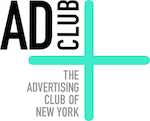Get Over the Rainbow-Washing: How Advertisers can create lasting change for the LGBTQI+ community

By Julia Cramer, Admoni
Around the world, Pride is celebrated in June to empower and amplify the LGBTQI+ community through parades, parties, protests, and marches, deriving from the Stonewall Riots in NYC. Cut to fifty-plus Prides later, we are seeing more companies showing their support for the LGBTQI+ community by incorporating Pride colors into their products, rainbow logos on social media, and sponsoring Pride events, jumping on the rainbow train, so to speak.
Many activists and consumers believe companies are exploiting the Pride movement with a superficial display of allyship, freely airing LGBTQI+ symbols to advertise and win over consumers without caring or giving to the cause - better known as performance activism or rainbow-washing. That’s not to say brands can’t display their solidarity. But, there is a fine line between signaling support and pandering to the ongoing conversation in hopes of making a profit and gaining more customers. So, how can brands avoid rainbow-washing? Brands can take explicit action to back up their public support through advocacy, inclusion, and equality. While not just demonstrating their support one month but all year-round to advance equity for the LGBTQI+ community.
Brands that provide active, hands-on support year-round include Levis, Revel & Riot, and Wildfang. Ensuring inclusivity in the workplace, donating a portion of their proceeds to LGBTQI+ organizations, and creating gender-fluid clothing, are just a few ways these companies show up for the LGBTQI+ community with an open and cooperative course of action.
So, how do companies move away from once-a-month corporate performative activism?
An Inclusive Workplace
Let’s start internally. LGBTQI+ communities have been experiencing discrimination, distress, and even danger in the workplace - even when their companies uphold diversity and inclusion practices. IBM Institute released a report discussing substantial measures employers can take to create a safe and inclusive space for LGBTQI+ employees. For instance, getting more LGBTQI+ people in leadership roles, developing mentorship programs, and hosting educational seminars for employers and managers are just a few ways companies can battle discrimination in the workplace. Plus, offering gender-neutral bathrooms, using personal pronouns, and setting clear expectations are necessary for building a respectful work environment. Read more here on how companies can create more welcoming workplaces.
Political activism
Today’s customers are holding brands accountable on public issues, with 70% of consumers saying it’s essential for brands to take a stance on social, political, and environmental issues. With the impact of social media, brands have a powerful opportunity to make a real difference and invest in a forward-thinking economy. Companies can demonstrate their support and advocacy by speaking out against public policies that negatively impact the LGBTQI+ community. For example, Chobani, AT&T, and American Apparel spoke out against Russia’s anti-LGBTQI+ laws during the 2014 Olympics, the first advertisers connected to the Olympic Games to take a strong stand against Russian law.
Support LGBTQI+ Communities
Another way brands can make an impact is by raising awareness and supporting communities through donations, sponsorships, and marketing initiatives all year around. Jagermeister partnered with The Lesbian Bar Project to launch its “Save the Night” initiative, which premiered a documentary short of bringing more prominent awareness to the depletion of lesbian bars across the country. The Lesbian Bar Project aspires to restore queer spaces in a post-pandemic landscape. With Jägermeister’s assistance, the campaign was able to bring more awareness to the prioritization of creating space for marginalized groups.
Brands need to commit to supporting the LGBTQI+ community long-term. Rainbow washing and Pride-focused campaigns will not be meaningful enough nor create a lasting change. Not only do consumers know when brands' behavior is deceitful and hypocritical, but marginalized communities also need to be shown equal treatment, dignity, and respect. Acknowledging the history, identifying and working to disassemble discrimination, and taking action while building ongoing connections with the LGBTQI+ community outside of Pride month are needed in order to create a corroborative and inclusive society.
